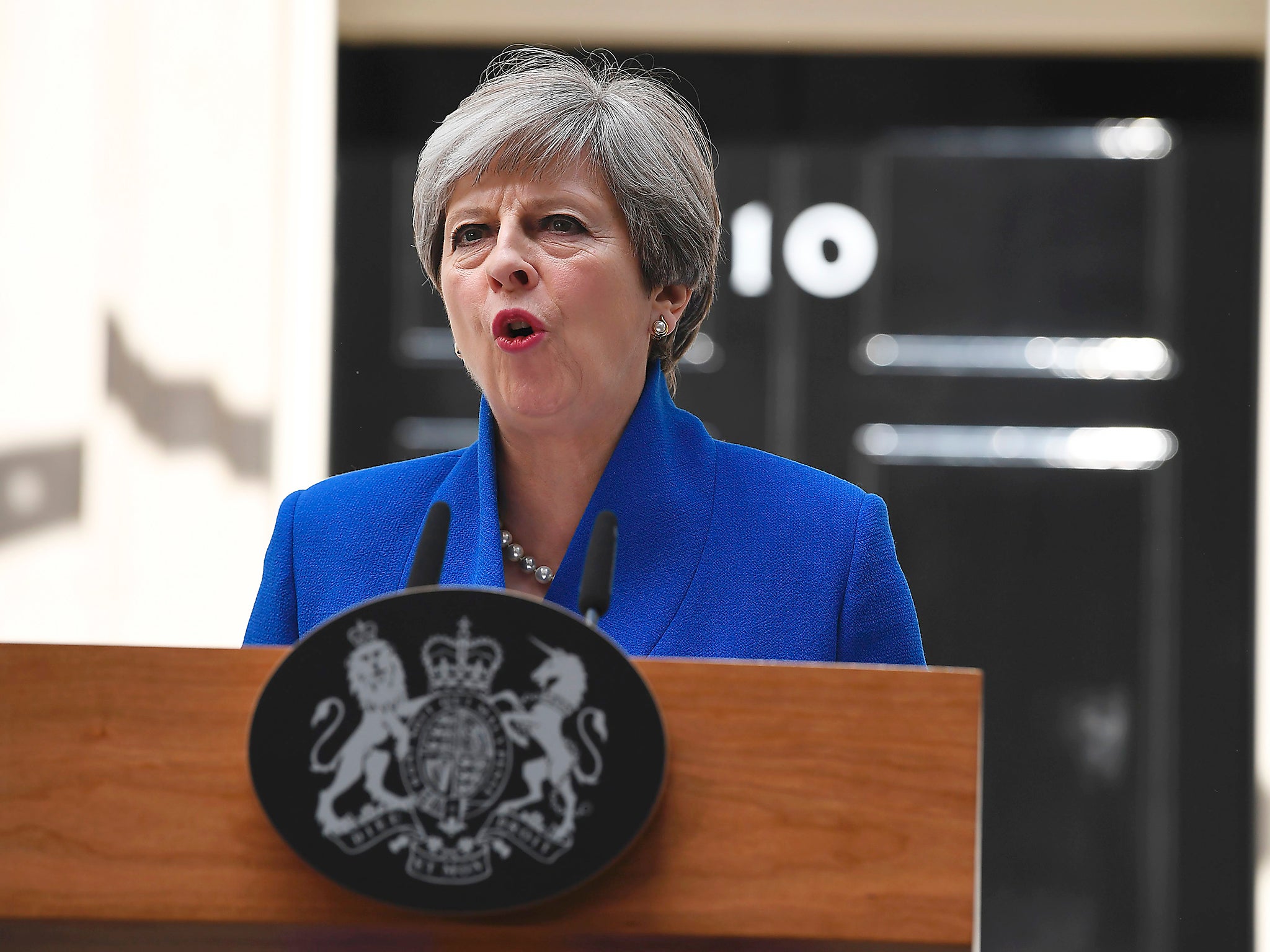UK Music chief reacts to General Election result: 'It is paramount that the interests of the industry are considered'
Theresa May is clinging onto power and looks set to strike a deal between the Tories and the DUP

Your support helps us to tell the story
From reproductive rights to climate change to Big Tech, The Independent is on the ground when the story is developing. Whether it's investigating the financials of Elon Musk's pro-Trump PAC or producing our latest documentary, 'The A Word', which shines a light on the American women fighting for reproductive rights, we know how important it is to parse out the facts from the messaging.
At such a critical moment in US history, we need reporters on the ground. Your donation allows us to keep sending journalists to speak to both sides of the story.
The Independent is trusted by Americans across the entire political spectrum. And unlike many other quality news outlets, we choose not to lock Americans out of our reporting and analysis with paywalls. We believe quality journalism should be available to everyone, paid for by those who can afford it.
Your support makes all the difference.The chief executive of UK Music has promised to hold the new Government's "feet to the fire" to make sure they deliver on pledges to the creative industries.
Theresa May has clung onto power despite a shock result for the Labour party that saw it increase its share of the vote by 9.6 per cent.
After visiting the Queen, the Prime Minister claimed there was a "strong relationship" between the Conservatives and the DUP, despite concern over the latter's controversial policies over abortion and LGBT rights.
Prolific figures in the music industry have nonetheless reacted positively to Labour's success, and Michael Dugher, chief executive of UK music, has now said it is paramount that the interests of the industry are considered in conversations that will take place over the coming weeks.
“UK Music congratulates all those elected at the General Election," he said. "Clearly the dust is settling and the situation will continue to unfold in the coming days, so we await developments.
"But over the coming weeks there will be many discussions about the future direction the country will take. It is paramount that the interests of the music industry are fully considered in those conversations and we look forward to engaging positively and working closely with the new parliament and the next government.
"The political parties each made welcome commitments to build on the successes of creative industries, and music in particular, throughout the election campaign. We will be holding their feet to the fire to ensure that they deliver on those pledges. Brexit is clearly the biggest issue facing the country – and our industry – and we will ensure that the interests of our members across the music industry are protected."
Corbyn has been especially passionate about supporting the UK music industry, which brings an annual £4 billion to the economy.
"Every Adele or Stormzy has to start somewhere," he said in a recent speech. He also told The Independent in an exclusive interview that live music venues were "absolutely crucial" to Britain and that he wanted to encourage music in schools.
Enjoy unlimited access to 100 million ad-free songs and podcasts with Amazon Music
Sign up now for a 4 month free trial (3 months for non-Prime members)
Enjoy unlimited access to 100 million ad-free songs and podcasts with Amazon Music
Sign up now for a 4 month free trial (3 months for non-Prime members)
Meanwhile Matt Hancock, who last year was made Minister of State for Digital and Culture, has been re-elected as MP for West Suffolk, winning 31,649 votes.
Hancock wrote to London Mayor Sadiq Khan in March urging him to tackle the controversial risk assessment form 696, which has been accused of targeting grime artists.
In an interview with Music Week before the election took place, he claimed that there was "no better party" for the music industry than the Conservatives.
Among his pledges, he said that he wanted to ensure that "our vibrant live music scene continues" and said that the Tories had put £300 million into music education in the last six months.
He cited his work fighting the secondary ticketing market, and also said that he felt music tourism would be able to continue to thrive after Brexit.
Join our commenting forum
Join thought-provoking conversations, follow other Independent readers and see their replies
Comments